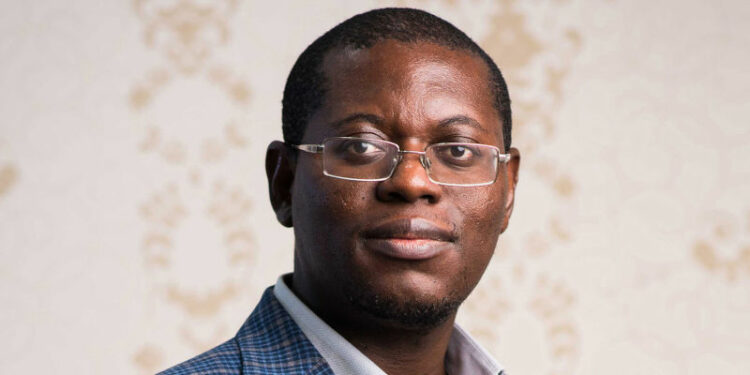New Afreximbank President Faces Tough Strategic Decision Dilemma Amid Credit Downgrade – Bright Simons Says
The incoming President of the African Export-Import Bank (Afreximbank) faces a critical strategic decision following Fitch Ratings’ downgrade of the Bank’s credit profile to just one notch above junk status.
Policy Analyst and Vice President of IMANI Africa, Bright Simons, has described the downgrade as a moment of reckoning for the continental lender, highlighting the reputational and structural challenges that confront the new leadership.
According to Mr Simons, the new President will be forced to choose between maintaining Afreximbank’s current high-risk, high-reward lending model that offers speed and flexibility, or opting for a more conservative path—reducing risk and profit margins in exchange for enhanced credibility and global standing.
“News that Fitch, a rating agency, has downgraded the credit of Afreximbank to one notch above junk status will naturally trigger scrutiny of the legacy of Afreximbank’s outgoing Boss, Prof Oramah,” Simons noted in a statement on X formerly Twitter.
A Legacy Under Scrutiny
Prof Benedict Oramah, the outgoing President of Afreximbank, is credited with expanding the Bank’s asset base, influence and visibility across the continent. However, critics say he fell short of securing for the institution a key recognition granted to other global and regional multilateral development banks (MDBs) which is the Preferred Creditor Status (PCS).
PCS grants MDBs such as the African Development Bank and World Bank the legal assurance that they will be repaid even when debtor countries default.
Mr Simons points out that Fitch’s recent downgrade is directly linked to the issue of Ghana defaulting on its sovereign debt in 2022. He explained that when Ghana defaulted on its sovereign debt in 2022, Afreximbank invoked its PCS and requested an exemption from the debt restructuring. The then NPP government, having benefitted from non-programmatic facilities from Afreximbank, agreed not to impose haircuts.
However, Ghana’s new administration, working under an IMF programme and not willing to risk its relationship with the IMF and other creditors, has taken a divergent position insisting that Afreximbank should participate in the burden-sharing and accept haircuts.
Commercial vs Developmental Identity
Mr Simons in his post on X, identifies several structural features that distinguish Afreximbank from traditional MDBs:
- Its loans carry high interest rates, such as the ~10% facility extended to Ghana.
- It has a mixed shareholder structure, including commercial entities, unlike conventional MDBs that are government-owned.
- It operates in a more opaque, transactional fashion—rarely publishing loan terms or aligning disbursements with reforms or policy conditions.
- Its loan tenures are shorter (7–10 years), compared to the 30–40-year facilities offered by special MDBs.
- Its shareholder base, comprising mainly African states and entities, is marked by low average credit ratings.
Nonetheless, these attributes have made Afreximbank a preferred financier for many African governments in urgent need of foreign exchange. According to Mr Simons, cumulative government deposits with the Bank now exceed $35 billion—a testament to its popularity on the continent.
“African governments like Afreximbank’s flexible, transactional, ask-no-questions style,” he noted.
Charting a New Course
Looking ahead, the next President of Afreximbank must address what Mr Simons calls the Bank’s “existential reputational issue”, by deciding whether to pursue global recognition as a bona fide MDB with PCS or continue operating as a commercially-driven institution serving high-risk sovereign clients.
“It’s a tough decision: stay with high-risk, high-reward plus flexibility and make a lot of profit. Or reduce profits and growth rate, help broke desperate governments, and boost rating to acquire ‘special status’ reputation,” Mr Simons concluded.








